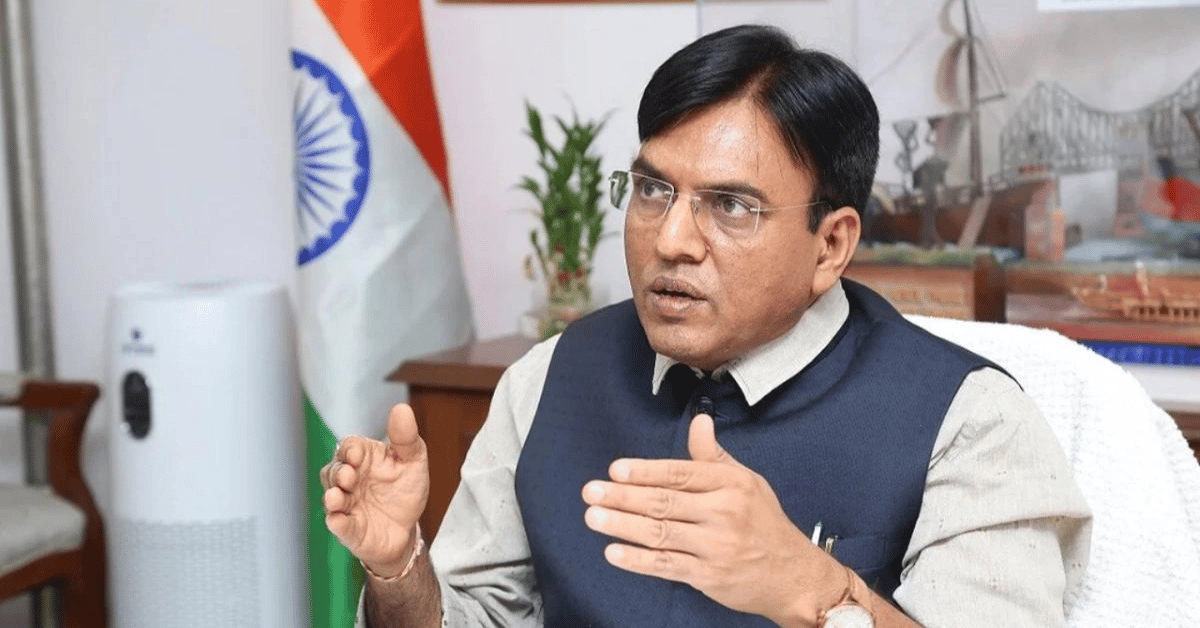Chairing a review meeting, labour minister Mandaviya said that companies that employ gig and platform workers will be asked to take the lead in registering their workers on the portal
An online window will be made available for aggregators to ensure a smooth and efficient registration process, the labour minister said
Incorporated in 2021, the e-Shram portal is a national database of unorganised workers, including migrant workers, construction workers, gig and platform workers
Amid rising calls for more social security for gig workers, labour and employment minister Mansukh Mandaviya has said that aggregator platforms will soon have to register details of their gig workers on the e-Shram portal.
“An online window will be made available for aggregators to ensure a smooth and efficient registration process. This is a significant step towards acknowledging and formalising the roles of gig and platform workers within our economy,” Mandaviya said on Sunday (September 1).
While chairing a review meeting, the minister said that companies that employ gig and platform workers will be asked to take the lead in registering their workers on this portal.
Incorporated in 2021, the e-Shram portal is a national database of unorganised workers, including migrant workers, construction workers, gig and platform workers.
Post registration, these workers are provided with an Universal Account Number (UAN) that will link all their existing multiple Member Identification Numbers to a single user. As of August 2024, 30 Cr workers were registered on the portal.
Mandaviya also said that the government is actively identifying avenues to bring unorganised workers under the ambit of social security schemes. He highlighted that every worker in India, irrespective of their employment status, is granted the right to social security under the Code on Social Security.
The code was introduced by the central government in 2020 and aims to amend and consolidate laws related to social security in order to extend social security benefits to all employees and workers.
The government’s push to introduce social security norms for gig workers comes after multiple strikes organised by gig workers this year so far to protest work conditions.
Most recently, auto and taxi drivers across Delhi NCR protested against cab aggregators like Ola and Uber in August this year.
Further, women gig workers associated with Urban Company went on a strike at the startup’s Bengaluru office to protest against its new terms of reference in June this year. At the time, the gig workers claimed that the work conditions at the company were “horrific” and forced “thousands of partners to work under slavery like situations”.
Notably, Fairwork India rated Ola, Uber, Dunzo, and Porter as the worst-performing startups on its index on working conditions of gig workers.
Disclaimer
We strive to uphold the highest ethical standards in all of our reporting and coverage. We StartupNews.fyi want to be transparent with our readers about any potential conflicts of interest that may arise in our work. It’s possible that some of the investors we feature may have connections to other businesses, including competitors or companies we write about. However, we want to assure our readers that this will not have any impact on the integrity or impartiality of our reporting. We are committed to delivering accurate, unbiased news and information to our audience, and we will continue to uphold our ethics and principles in all of our work. Thank you for your trust and support.



![[CITYPNG.COM]White Google Play PlayStore Logo – 1500×1500](https://startupnews.fyi/wp-content/uploads/2025/08/CITYPNG.COMWhite-Google-Play-PlayStore-Logo-1500x1500-1-630x630.png)